The Drug Whisperer: How a single over-the-counter allergy pill nearly cost a man his children
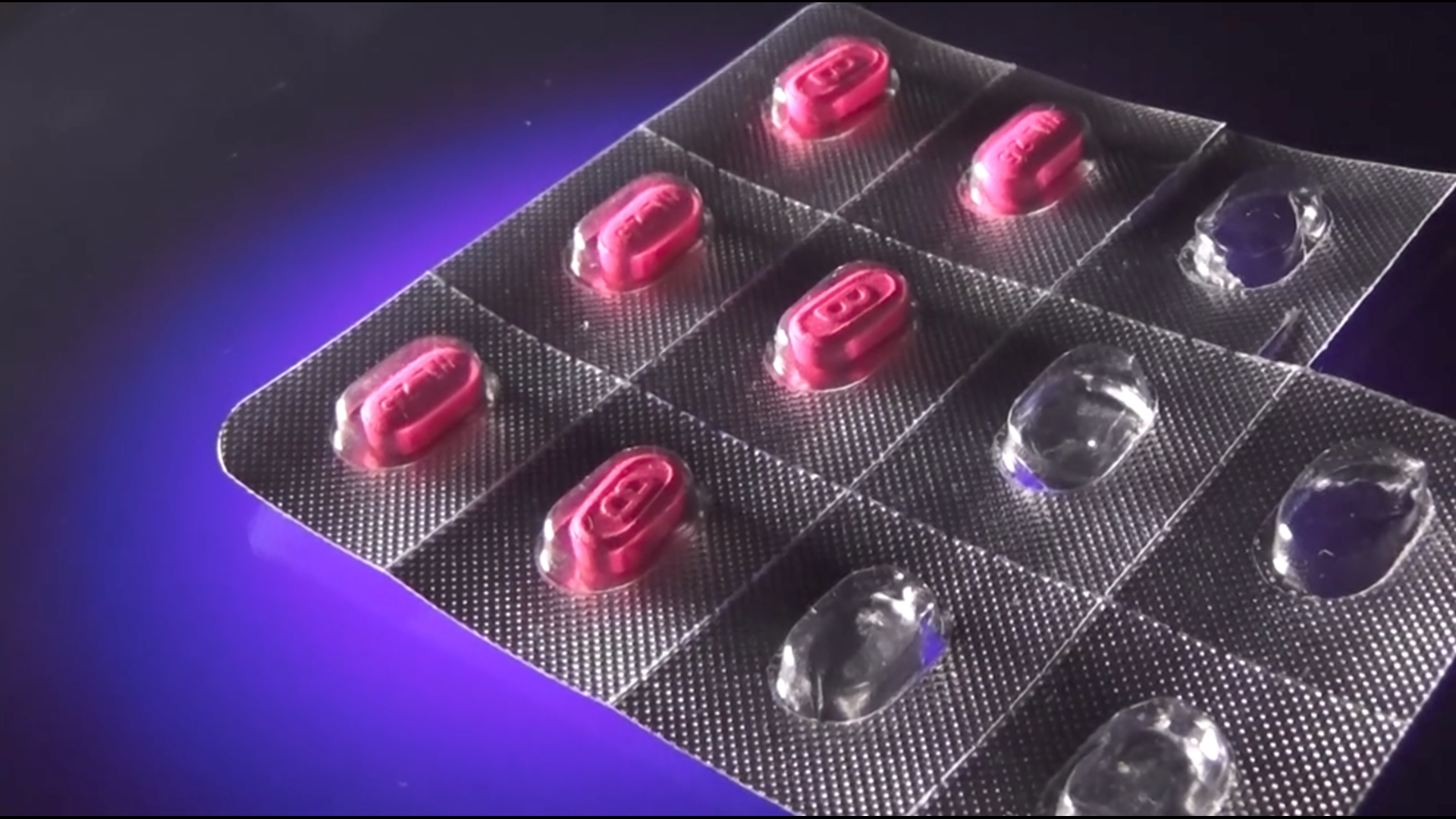
A Georgia father nearly loses custody of his two young kids because of a DUI arrest – but he didn’t have a drop to drink.
Now, the single over-the-counter allergy pill that left a father fighting to save his family.
The Traffic Stop
“I’m gonna pull him out and check his sobriety,” a police officer says, talking about a man he has pulled over.
The officer has a man pulled over on the side of a dark road for speeding -- the man was driving a minivan at 50 mph in a 35 mph zone.
The 11Alive Investigators later discovered through a combination of checking police department records and independent geographic measurement that the initial reason for the traffic stop itself was accurate. The minivan was, indeed, being driven 15 mph over the posted speed limit for that stretch of road.

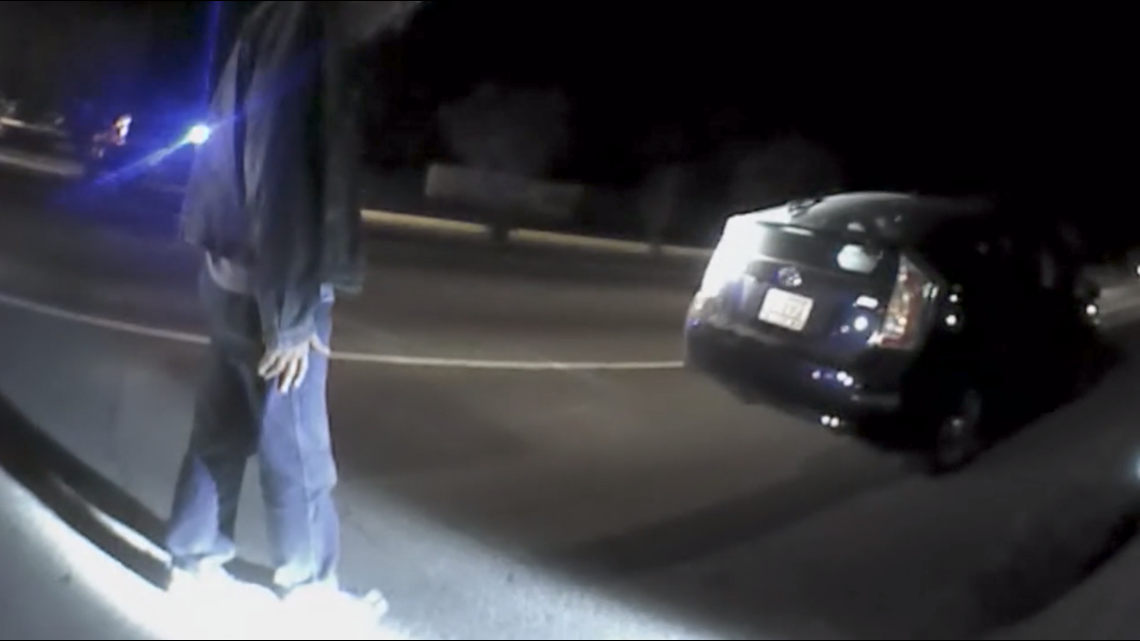
“Are you on any medication, or taking any medication for anything?” the officer asks the man.
“No sir,” the driver.
“None at all?” the officer asked.
“No,” the driver replied.
“Have you had anything to drink tonight?” the officer asked him.
“Nothing at all,” he answered.
“Okay.”
A college professor – arrested for DUI in front of his son and daughter.
“At this time, do me a favor,” the officer said. “Put your hands behind your back.”
“How old are your children?” the officer asked.
“Twelve and ten,” the man replied.
“I’m Lt. Chapman with the Garden City P.D.,” the officer told the children sitting inside the car. “Is this your dad?”


Back on the dashcam, the officer can be seen putting handcuffs on the driver.
“I’m placing you under arrest for suspicion of DUI-Less-safe, drugs – Okay?” the officer said.
“Well, he’s being placed under arrest right now,” the officer could be heard telling the kids. “And I’ll explain everything to your mom.”
Later, the college professor spoke with 11Alive’s Brendan Keefe.
“The fact that my kids had to watch all this thing – was very, very distressing,” he said. “I didn’t have a chance to explain to them what was happening. They only saw me being put in handcuffs.”
“Your father’s going to be treated very well, okay,” the officer could be heard saying to the kids. “There’s just a problem with his driving.”
“The police tried to play it down – ‘Oh, we’re going to treat your dad nicely – he’s going to sleep in his own bed tonight’ – and this and that,” he said. “But my kids are going to have to live forever with the memory of their dad being placed in handcuffs right in front of them. They’re damaged by this.”
The professor is still so traumatized by the incident, he does not want us to use his name.
Charged with DUI-Drugs
Garden City Police charged the father with DUI-Drugs, and with two counts of child endangerment – because his kids were in the back seat.
Two convictions for child endangerment would have been – you don’t see your kids. They either go to your ex-wife or foster care?
“Right,” the professor said. “In the back of my mind the whole time is, I know that I’m innocent, and I didn’t endanger my children in any way.”
“Your husband has been placed under arrest for suspicion of DUI-Drugs,” the officer can be heard telling the professor’s ex-wife on the phone.
“What!?” she’s heard saying incredulously.

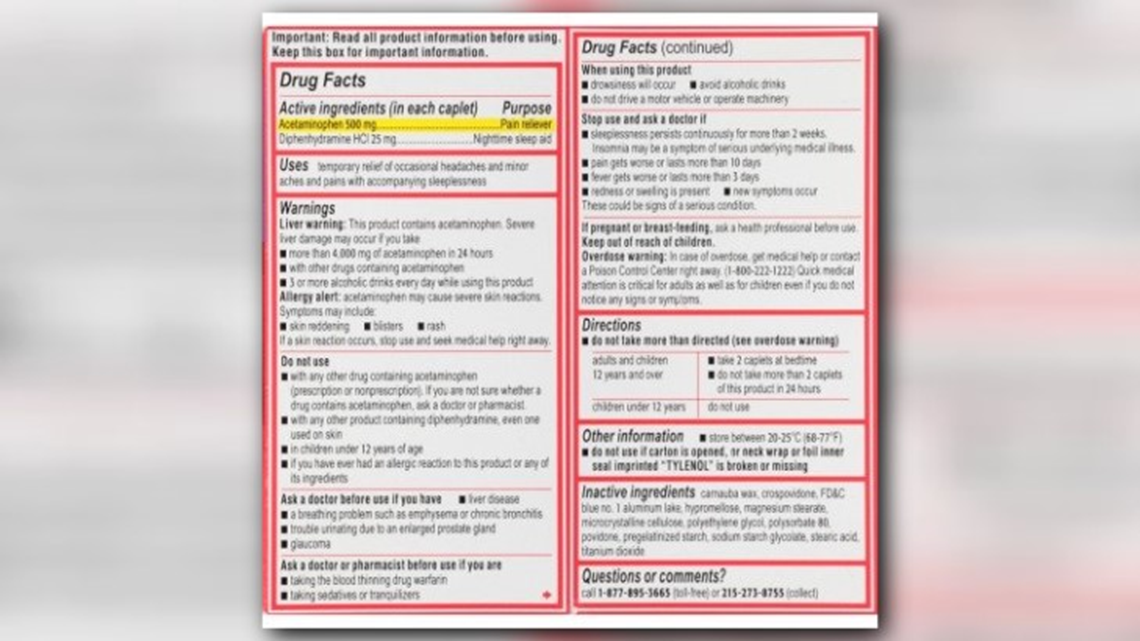
“Even my ex said, ‘I know that he wasn’t doing anything to endanger the kids, and know that he doesn’t do drugs or anything like that,’” he said.
“You’re the wife,” the officer said. “Ex-wife?”
“Ex-wife, yes,” she said as she got out of her car.
“He’s going to be under arrest for DUI, okay?” the officer said.
“But—but he doesn’t drink,” she said, still clearly aghast by the officer’s assertion.
“For medication,” the officer said.
The blood test came back positive for one drug: Tylenol PM. Specifically, diphenhydramine – the active ingredient in the allergy medicine Benadryl. Either of these over-the-counter medications can impair a driver worse than alcohol – but only four to six hours after taking one.

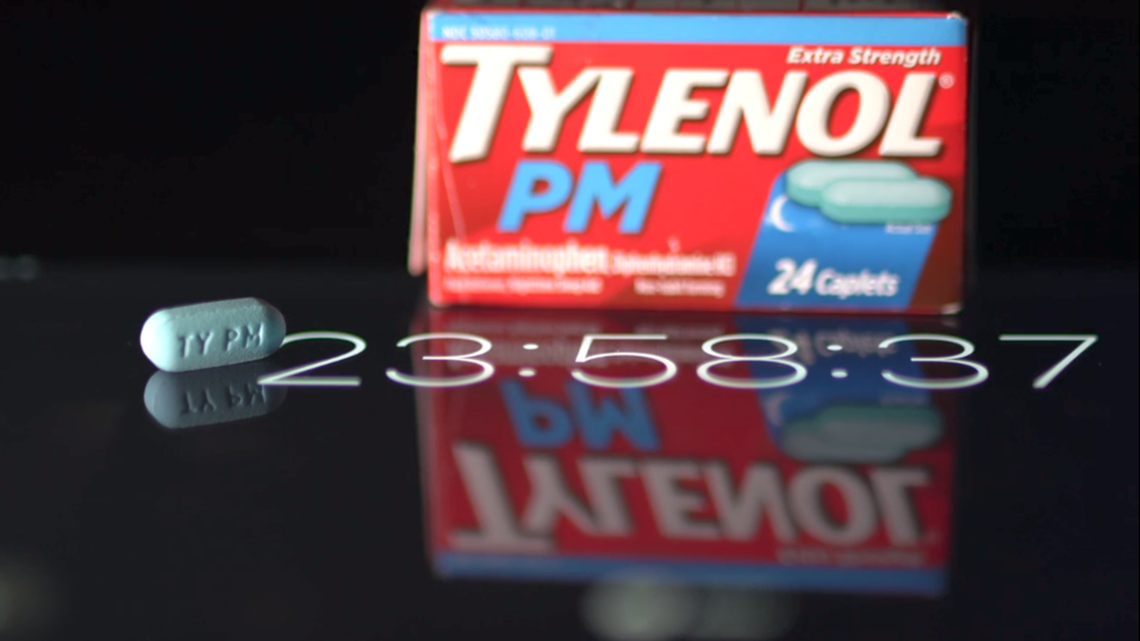
“I had taken a Tylenol PM,” the professor said. “Nineteen hours before the arrest was made!”
Indeed – the GBI Crime Lab detected the Benadryl in such a small amount, it was consistent with a single dose taken a full day before the traffic stop.
“They wanted me to go to a lesser plea and go to DUI school,” the professor said.
“Because of a Benadryl you took almost 24 hours earlier?” Keefe asked.
“Yeah,” the professor said. “Correct – or the day before.”
“This was the next day,” Keefe said. “The next night – not even the next day, the next night.”
Keefe spoke later with Garden City’s police chief, David Lyons.
“Is this driver innocent of DUI?”
“Well, he is now,” Lyons said. “The court dismissed the charges against him.”
► Make it easy to keep up-to-date with more stories like this. Download the 11Alive app now.
Lyons once led Georgia’s Association of Chiefs of Police. He says the officer’s opinion is the only tool approved for detecting drugs pre-arrest.
“If it’s alcohol, you can do an intoxilyzer immediately,” Keefe said.
“On the spot,” Lyons agreed. “On the spot. For DUI-Drugs, no such thing. Some tool that I have, beyond an educated guess that you’re impaired or not.”
“It’s like a guessing game,” the professor said. “’Well, maybe the drug test will turn out something.’”
The officer did not have a crystal ball. He had no way of telling what the drug test would reveal weeks or months into the future. The GBI Crime Lab takes an average of seven weeks to test for drugs alone -- and nearly three months if testing for alcohol as well. In the meantime, the future for the accused is unclear, and their world is turned upside down.


“I know that when you go to a doctor, you can get results from lab tests in three days at the most,” he said. “But here, because it has to go to the GBI and all this stuff, it’s going to take three months to get your lab tests back.”
“You may not get a definitive answer for weeks or months?” Keefe asked Chief Lyons.
“Exactly,“ the police chief responded.
“Sir, would you mind stepping back here for me please?” the officer asked.
So, the only drug detector available in the field is the police officer himself.
Back in on the side of the road, the officer can be heard saying, “What I’m gonna have you do is put your back to my patrol car and just face me.”
“You could have gone to jail and lost your kids over the opinion of a police officer?” said Keefe.
“That’s right,” the professor said.
State records show the arresting officer completed advanced roadside impairment training – including drug detection – just 15 days before stopping the professor.
“If you give someone a hammer, everything starts looking like a nail?” Keefe asked rhetorically.
“Absolutely,” the professor replied.
Keefe asked Chief Lyons, “Is there a human element once you get advanced training that causes you to see things that are either there or not there?”


“I don’t – I don’t have an answer for that,” Lyons said. “I would – that argument can probably be made that, ‘I have this new training, and I’m going to go out and show the world that I know how to do all this stuff and I’m going to take advantage of my new latest toy.’ Maybe.”
The professor was not convinced.
“He’s just jumping to these conclusions that affect people’s lives – really playing with people’s lives,” the professor said. “It’s not a toy. It’s not ‘let’s pull him out and check his sobriety; let’s go see what we can find.’ It’s like somebody’s life you’re dealing with.”
Standing by the arrest
Garden City Police said they stand by their arrest of the professor.
They even point to a nearly undetectable amount of Ambien in the blood test – so small it couldn’t be measured by the GBI’s crime lab.
“I don’t have to be perfect,” Lyons said. “I have to be reasonable, and I have to have probable cause.”
“When they lose in court, nothing happens to them,” Keefe said.
“They have nothing to lose, and the citizen has everything to lose,” the professor said. “Their name, their reputation – their lifestyle.”
In the end, the professor did not lose the case, his job or his kids. But he did lose his trust in the system.
“It really makes you question the whole system of law enforcement. These people are supposed to be protecting – saving lives, and they’re messing up lives,” the professor said. “They’re ruining lives.”
“I’m not in the business of ruining somebody’s life,” Lyons said. “We are put in the position of getting impaired drivers off the road. At the end of the day, we did our job.”
“How many innocent people are you comfortable with being accused of arresting for something they did not do, in order to catch those impaired drivers and get them off the road?” Keefe asked Chief Lyons.
“I don’t know that I’m comfortable with any, if I have any control over it,” Lyons said.

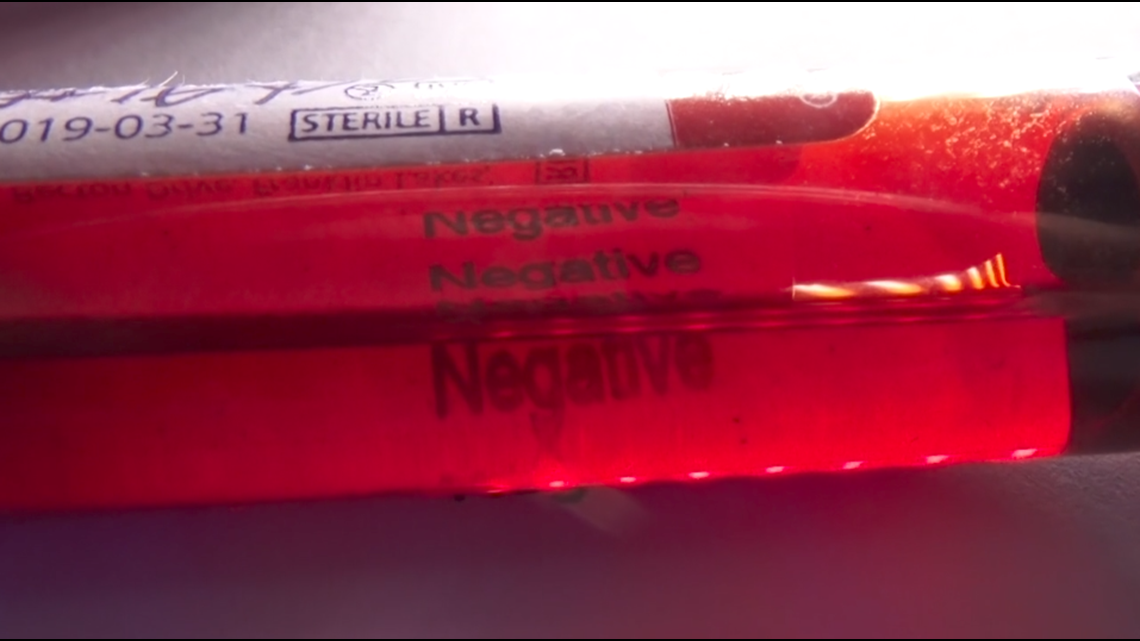
“If they arrest ten people, and eight of them are positive, who cares about the two innocent people?” Keefe asked the professor.
“That’s right – except the two innocent people,” the professor said.
“Do you think this driver is owed an apology, or not?” Keefe asked Chief Lyons.
“I don’t think he’s owed an apology,” Lyons said. “I would be more than willing to give him one."
Is this an isolated incident? Has something like this happened to you?
We are looking for additional stories of people who have encountered these types of incidents at traffic stops in Georgia and elsewhere.
Please contact us at bkeefe@11Alive.com.Thanks!
